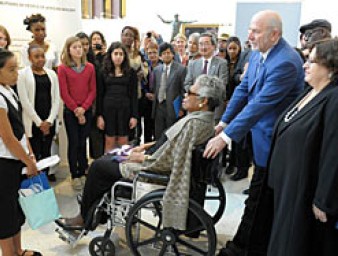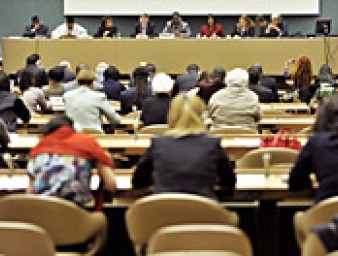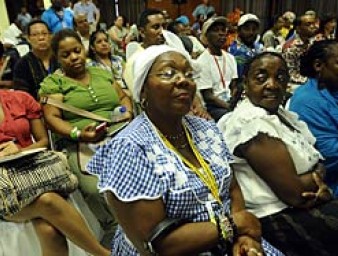“It is my obligation to stand against injustice.”
06 April 2023

“One day, on my way to work, I stumbled upon a Black woman and her child, sitting in front of a hospital in Yemen. The woman was profusely sobbing. I asked what was wrong, and she said that she and her son had just been evicted from the hospital because they were Black, hence dirty.”
Noman Al Hothaifi vividly remembered this scene, some 20 years later. He described it as the turning point that made him decide to quit his inspection job at the Ministry of Public Works and Highways and turn into an advocate for the human rights of Yemen’s Black community.
“I felt I had the obligation, as a Black person myself, to speak against this injustice,” Al Hothaifi said, “and this is how my struggle against racial discrimination in Yemen all started. I wanted to defend the rights of my people, to fight for them.”
Al Hothaifi, 51, is the President of the National Minorities Council of Yemen. He is currently the most prominent advocate for the rights of people of African descent in Yemen.
“In Yemen, national legislation is not discriminatory,” Al Hothaifi said. “However, racial discrimination heavily prevails in social practices which were passed on from generation to generation, since the Abyssinian occupation of Yemen.”
The Black activist refers to this occupation, in which the country was invaded and discriminatory practices such as slavery were introduced against the Black inhabitants, as the historical turning point that isolated Black Yemenis, and caused them to live in isolation, “in the shadows of society,” as he described it.
“Black Yemenis were merchants, nobility, and royalty,” Al Hothaifi said. “The occupation created social schisms and Black people were suddenly frowned down upon and looked down upon. We became some sort of secondary race, treated like slaves, stripped from all our rights, we were not allowed to own property, practice trade or send our children to school.”
Al Hothaifi helped establish many civil and human rights organizations representing people of African descent in Yemen. The most prominent was the National Union of the Marginalized, of which he has been President since 2007. He is also the founder of the voice of the Marginalized Voice News.
For Al Hothaifi, racial discrimination in Yemen evolved from historic discrimination, which later enshrined in the people’s customs and traditions.
“Arab culture is all about customs and traditions, and ours are quite discriminatory against Black people,” Al Hothaifi said. “They [traditions] dictate how we [Black people] should get married and how we should burry our dead.”
Having participated in various workshops and training courses on human rights, Al Hothaifi said the absence of social justice is a main culprit behind racial discrimination in the country.
“Racial discrimination and practices need to be clearly criminalized in national legislation,” he said, “otherwise the rule of law will remain far out of reach in my country.”
Al Hothaifi said education is a main agent of change in society. He described anti-racism as a social practice that needed to start from home and children’s classrooms.
“Black children are constantly bullied in Yemeni schools,” he said. “However, thanks to the advocacy and awareness raising efforts of our alliance, we have seen an increasing number of Black students graduating from high school and enrolling in local [or international] universities.”
Al Hothaifi took part in the Regional Meeting for the Middle East, as part of the International Decade for People of African Descent (IDPAD) organized by OHCHR in October 2022. The meeting brought together Black activists from the region, to discuss challenges and opportunities. Al Hothaifi said he was delighted to be able to “make new friends who share a common vision and a common struggle.”
During the meeting, several Black activists from the region came together and decided they would want to create a regional network for anti-discrimination activists.
“It may be just a dream” Al Hothaifi said. “But all dreams start with baby steps, don’t they?”
Four months after the regional meeting, this dream materialized.
On 21 March 2023, Al Hothaifi joined by 33 other Black activists from 13 countries in the MENA region, to officially launch the first Regional Network for Development and Anti-Racism in the Middle East and North Africa (RNDAR-MENA). The network is supported by UN Human Rights. Al Hothaifi is the network’s first president. He called the network the culmination of a lot of hard work and hopes.
“Today, [the network] is a concrete tool that will strengthen human solidarity to eliminate all forms of racial discrimination especially in the region where the gap widens between international human rights law and the bitter reality of daily life,” he said.



